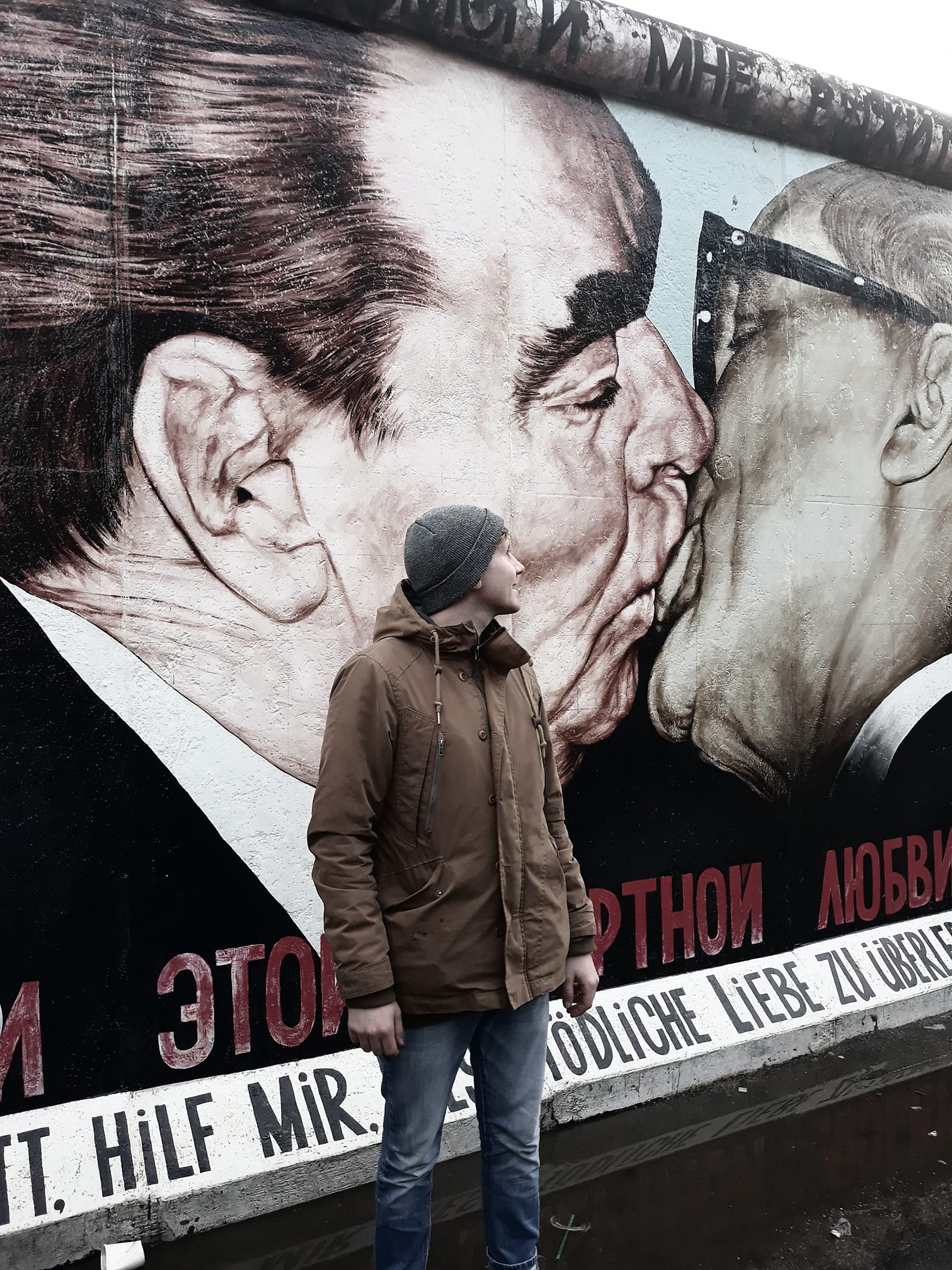
Stolen Kisses
Stolen kisses. They say truth comes from the mouths of children…Is being 11 years old still being a child? It’s
The European colonial history and its consequences seem to be deliberately omitted from our current conceptions of what we call “hospitality”. The title of the article by Baudouï R. and Kabouche M. perfectly illustrates the image I have of these reception centers, gathering these wandering bodies and minds in this dislocated world, which the authors call “inhuman landscapes”.
The more I take interest in our contemporary society, the more I feel it’s losing its way. Without really knowing where to go, it’s invaded by a bewildering chronic anxiety. It’s in this modern tumult that humans seek their bearings. What a windfall for the prophets of globalized fear, who make people believe that danger would necessarily come from elsewhere. Fed by the media, securitarian public policies and neoliberalism, the collective imagination wonders: where have the borders gone?
This current conception of hospitality is closely linked to the concepts of nationality, border or nationalism, particularly in relation to the shared history that connects the African continent and the European continent. The aftermath of the colonial era plays a role in modern migration flows and in tomorrow’s demographic forecasts. Even if some still discuss the intensity of this causal link, everyone agrees that it exists. This leads me to take a closer look at the concepts mentioned previously. My argument will then seek to demonstrate, through the course readings and my personal experiences, that what we call “hospitality” is a form of persistence of Western colonialism over the so-called “third world” countries.
Administrative detention centers are the hallmark of a selective reception policy. “The CIMADE’s assessment dedicates a chapter to it entitled ‘Sort to Exclude’. This selection ensures the social and economic utility of the” foreigner in Western capitalist society. The doctrine would have them not taking jobs coveted by European citizens. They are therefore constrained to precarious jobs, without qualifications, because this does not interest Europeans, often more “educated”.
This mainly concerns asylum seekers who entered the territory illegally and are followed by social services. When they are graduates, they are pre-selected before their arrival to work in sectors lacking qualified workforce. I was able to observe this selection in my role as president of the Foreigners Association of Chambéry. Each year, thousands of African students receive acceptance from Campus France to come study in France. Generally admitted to several universities, they must then find accommodation within a 100 km radius of the campus to obtain their visa.
Some contact the association to obtain a housing certificate, which we cannot provide. This document, essential for obtaining a student visa, is a real headache for many “foreign students. They are often stigmatized, without proof of income, and in competition with hundreds of thousands of” students looking for housing each year. Knowing the rental tension in large university cities and the reluctance of landlords to rent to a foreign student, we quickly understand that their mission is almost impossible.
The CROUS offers facilitated access to university residence housing, after reviewing applications. This selection helps limit the number of arrivals and maintain a certain control over their stay (particularly through the aid they receive). Those who fail to obtain housing through CROUS turn to relatives or pay strangers to obtain a certificate. These students, often far from support systems, become almost invisible to institutions. Their journey fraught with obstacles creates distrust towards French state services, which they suspect of monitoring them to better exclude them.
Even if it would be possible to provide a more dignified reception that respects human rights, this is not the strategy adopted by our states. After this selection phase, it’s about ensuring that those whose utility has not been recognized will dissuade their entourage from coming to Europe once they return home. Convincing that life in Europe is not safer than elsewhere amounts to ignoring the political and social realities of the countries of origin.
This strategy aims to cut the grass under the feet of potential departing candidates. The legislative, judicial, and media apparatus contributes to this by spreading a security rhetoric that justifies deterrent, often violent practices. The media mainly relay negative information about migrants, fueling discrimination and fear.
Police violence adds to this picture: camp evictions, racial profiling, arbitrary detention. FRONTEX agency, in one of its promotional videos, boasts of “making Europe safer”. This security discourse, claiming to protect citizens, contributes to the stigmatization of foreigners — a clear legacy of colonialism.
A frightened people seeks refuge. While some flee to survive, others lock themselves in their certainties, fears, and bitterness. This daily wonder that the unknown offers us seems so far removed from a society frightened by foreigners. And yet, it is the diversity of opinions, cultures, and traditions that breathes life into our bodies and minds.
I refuse this nationalist security doctrine. There is nothing exhilarating about marked paths, anticipated routes, predefined ways. The security sold to us all day long is not freedom. What is security, then? An illusion, a sensation that persuades us that everything is under control. But sometimes one must get lost to find oneself. The more I search for meaning in the infinite nuance of our lives, the more disoriented I feel.
Violence and compassion, love and hate, joy and sorrow: these opposites coexist, intertwine. In the age of globalization, violence becomes global, and we all seek a subtle balance to make life bearable. But in this quest for security, we have lost ourselves, and we pursue a dream of elsewhere that, right here, feeds on our fears.
This mass of frightened humans becomes an enslaved mass. Shaped by distant rumors, our fears paralyze us, and the silence of oblivion sets in. In this illusion where the unacceptable becomes commonplace, it is our very humanity that fades away. Naive witnesses to alarming realities, we remain motionless, impassive, and ultimately invisible.
In a world governed by free trade, where only market value counts, humans become commodities. This human trafficking, hidden behind conflicts and geopolitical interests, reminds us of that not-so-distant time when the domination of one culture over another was justified by labeling the Other as ‘primitive’.
Today, it is the terrorist threat that allows the dehumanization of the “foreigner by portraying them as a danger. If the times differ, the methods persist. Convinced that we can avoid the inevitable through security policies, our States” still stray into the pitfalls of a dehumanized world.
As the old continent chokes on its pride, it is not surprising that this mass of indignant humans may one day become an uncontrollable force.


Stolen kisses. They say truth comes from the mouths of children…Is being 11 years old still being a child? It’s